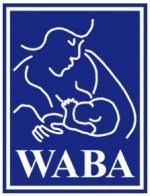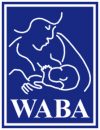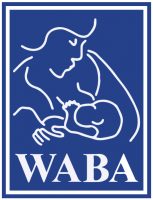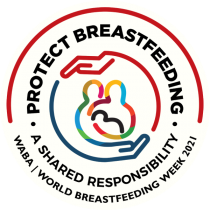Relevant resources
10 Reasons to Breastfeed an Older Child
ABM Clinical Protocol #7: Model Maternity Policy Supportive of Breastfeeding
Academy of Breastfeeding Medicine (ABM)
ABM Clinical Protocol #24: Allergic Proctocolitis in the Exclusively Breastfed Infant
World Health OrganisationAcademy of Breastfeeding Medicine (ABM)
ABM Clinical Protocol #30: Breast Masses, Breast Complaints, and Diagnostic Breast Imaging in the Lactating Woman
Academy of Breastfeeding Medicine (ABM)
ABM STATEMENT: Considerations for COVID-19 Vaccination in Lactation
Academy of Breastfeeding Medicine (ABM)
ACOG and SMFM Recommend COVID-19 Vaccination for Pregnant Individuals
American College of Obstetricians and Gynecologists (ACOG) & Society for Maternal-Fetal Medicine (SMFM)
Alive and Thrive: The International Code of the Marketing of Breastmilk Substitutes
Alive and Thrive
Baby food sales in India and China: A comparison with the economic value of breast milk
J.P Smith et al
Breastfeeding and asthma and allergies: a systematic review and meta-analysis
C J Lodge et al
Breastfeeding during the first hour of life and neonatal mortality
Cristiano Siqueira Boccolini et al
Breastfeeding in the 21st century: Epidemiology, mechanisms, and lifelong effect
Cesar G Victora et al.
Breastfeeding in the context of covid-19
compiled by World Alliance for Breastfeeding Action
CAPTURE THE MOMENT: Early initiation of breastfeeding: The best start for every newborn
World Health Organisation & UNICEF
COVID-19 vaccines, pregnancy and breastfeeding
Royal College of Obstetricians and Gynaecologists (RCOG)
COVID-19 Vaccines While Pregnant or Breastfeeding
Centers for Disease Control and Prevention (CDC)
Coronavirus (COVID-19), Pregnancy, and Breastfeeding: A Message for Patients
American College of Obstetricians and Gynecologists (ACOG)
COVID-19 Vaccines: safety surveillance manual. Module on safety surveillance of COVID-19 vaccines in pregnant and breastfeeding women
World Health Organisation
Early initiation of breastfeeding to promote exclusive breastfeeding
World Health Organisation
Episode #41 - Vaccines, pregnancy, menstruation, lactation and fertility
World Health Organisation
Guideline: Counselling of women to improve breastfeeding practices
World Health Organisation
Helen Keller International's ARCH Project - Toolkit: International Code of Marketing of Breast-Milk Substitutes
Helen Keller International (HKI)
Implementation guidance: Protecting, promoting and supporting breastfeeding in facilities providing maternity and newborn services: the revised baby-friendly hospital initiative
World Health Organisation & UNICEF
Implementation guidance: protecting, promoting and supporting breastfeeding in facilities providing maternity and newborn services: the revised baby-friendly hospital initiative
World Health Organisation & UNICEF
Infant milk-feeding practices and food allergies, allergic rhinitis, atopic dermatitis, and asthma throughout the life span: a systematic review
Darcy Güngör et al
Infant and young child feeding: Model Chapter for textbooks for medical students and allied health professionals
World Health Organisation
Infant and Young Child Feeding in Emergencies: Operational Guidance for Emergency Relief Staff and Programme Managers
IFE Core Group
Innovation brief: Dads can do that! Strategies to involve fathers in child feeding
Alive & Thrive
International code of marketing of breast-milk substitutes
World Health Organisation & UNICEF
Mammals: Feeding their Babies Since the Beginning of Time!
Healthy Child Manitoba & Youville Centre
Marketing of breastmilk substitutes during the covid-19 pandemic
Christoffer van Tulleken, Charlotte Wright, Amy Brown, David McCoy and Anthony Costello
Marketing of breast milk substitutes: National implementation of the international code, status report 2020
World Health Organisation
National Implementation of the International Code: Status Report 2020
Global Breastfeeding Collective
Neonatal circumcision: effects on breastfeeding and outcomes associated with breastfeeding
David M Fergusson et al
Nurturing the health and wealth of nations: The investment case for breastfeeding
Global Breastfeeding Collective
Operational Guidance on Infant Feeding in Emergencies (OG-IFE) version 3.0
IFE Core Group
Parenting and breastfeeding during COVID-19
World Alliance for Breastfeeding Action (WABA)
SARS-CoV-2–Specific Antibodies in Breast Milk After COVID-19 Vaccination of Breastfeeding Women
Sivan Haia Perl et al
Surely you’re not still breastfeeding’: a qualitative exploration of women’s experiences of breastfeeding beyond infancy in the UK
Amy J Thompson et al
Timing of Circumcision and Breastfeeding Initiation Among Newborn Boys
Lisa Mondzelewski et al
The Effect of Circumcision on Exclusive Breastfeeding, Phototherapy, and Hospital Length of Stay in Term Breastfed Newborns
Cliff O’Callahan et al
Update on WHO Interim recommendations on COVID-19 vaccination of pregnant and lactating women
World Health Organisation
Warm Chain Card – Father
World Alliance for Breastfeeding Action (WABA) & Family Initiative
WHO’s Science in 5 on COVID-19: vaccines, pregnancy, menstruation, breastfeeding and fertility
World Health Organisation
Why invest, and what it will take to improve breastfeeding practices?
Nigel C Rollins et al
WABA | WORLD BREASTFEEDING WEEK


World Alliance for Breastfeeding Action (WABA) is a global network of individuals and organisations dedicated to the protection, promotion and support of breastfeeding worldwide based on the Innocenti Declarations, the Ten Links for Nurturing the Future and the WHO/UNICEF Global Strategy for Infant and Young Child Feeding. WABA is in consultative status with UNICEF and an NGO in Special Consultative Status with the Economic and Social Council of the United Nations (ECOSOC). WABA coordinates the annual World Breastfeeding Week campaign.
COPYRIGHT NOTICE: WABA asserts all legal rights and intellectual property rights under the Berne Convention over the World Breastfeeding Week Logos and Campaign Materials. This copyright is subject to fair use, with appropriate attribution to WABA. The logos and materials shall not be used in any way that directly or indirectly damages WABA’s reputation and/or standing, whether by content, context or association. Prior written consent shall always be sought before the logos and materials are used in any commercial activity or adaptations/modifications are made (email to [email protected]). The logos and materials shall not be used in any event and/or activity sponsored, supported or organised by companies manufacturing, distributing or marketing breastmilk substitutes, feeding bottles, or teats. See FAQ on https://worldbreastfeedingweek.org/frequently-asked-questions-faq/ for further information.
Contact Us
- +604 - 658 4816
- +604 - 657 2655
- [email protected]
- WABA, PO Box 1200 10850 Penang, Malaysia

